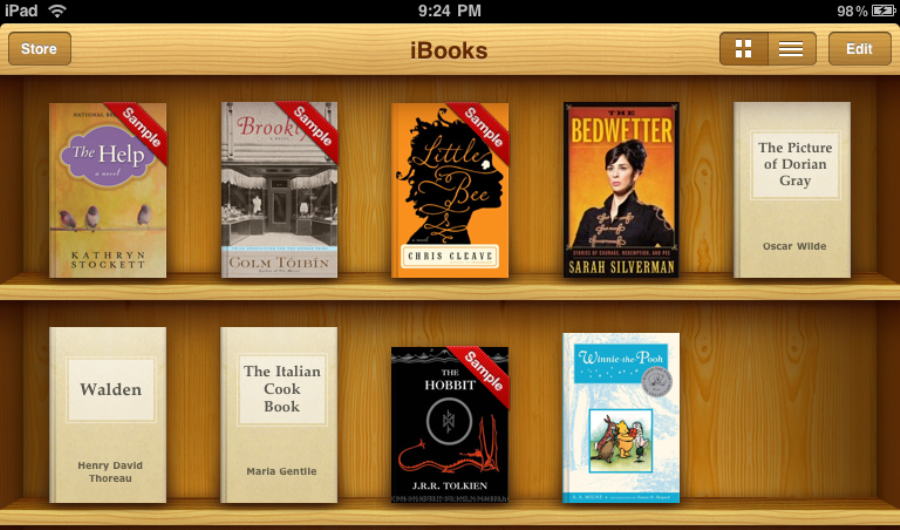Renaming the library as the “Information Commons” was the correct decision.
Once the facility is rendered bookless, it can no longer be considered a library. Thanks to the impending surge of iPads and Kindles, it will be more of a device-borrowing center—which, to put it bluntly, is an appalling change.
Even as an appreciative owner of a Kindle, I’d choose a thick, paperback book over a gray little rectangle any day. Jack Cheng, author of These Days, says that “having a hardcover on [his] shelf is like having a print by [his] favorite artist on the wall”.
Well, if that’s the case, a book should be considered just as irreplaceable as a piece of art. I mean, imagine flying over 6,000 miles to The Louvre just to see Mona Lisa smiling at you from an iPad screen. Sure, the content is just the same, but why do you feel so disappointed? The same applies to books.
Turning over the crisp edge of a page gives me a subtle thrill, a physical hint that I am being productive without my laptop around to distract me. If people didn’t enjoy the material sensation of flipping through pages, we would probably still be reading scrolls. Tapping on a bland, grayscale screen over and over just isn’t the same. And once books go digital, the texture, which many avid readers find essential, is lost.
Picture our library shelves stacked with rows and rows of Kindles. If that happens, no longer can you embark on the fun (and occasionally frustrating) search for the right title on the right spine. And what will come of the library catalog, Destiny?
Frankly, it bothers me that money is being spent to take books away from us. I understand wanting to incorporate more technology into our environment, but it’s not necessary to evacuate the books to some concentration camp in the basement.
Bookless and meaningless
December 31, 2013
0
More to Discover


![A myriad of impressive trophies and awards. [ANNABELLE HSU/THE BLUE & GOLD]](https://blueandgoldonline.org/wp-content/uploads/2025/09/Awards2-1200x512.jpeg)
![Students' calendars say goodbye to exam week. [ANNABELLE HSU/THE BLUE & GOLD]](https://blueandgoldonline.org/wp-content/uploads/2025/09/Exam-week-1200x740.jpg)
![A collection of college flags. [PHOTO COURTESY OF AMBER HU ('27)]](https://blueandgoldonline.org/wp-content/uploads/2025/05/IMG_5029-1200x577.jpeg)

![An SAT word cloud. [PHOTO COURTESY OF WORDCLOUDS]](https://blueandgoldonline.org/wp-content/uploads/2025/05/SAT.jpeg)
![Collage of banned books, including “The Handmaid’s Tale” by Margaret Atwood. [MINSUN KIM/ THE BLUE & GOLD]](https://blueandgoldonline.org/wp-content/uploads/2025/04/IMG_4274-1200x681.jpeg)